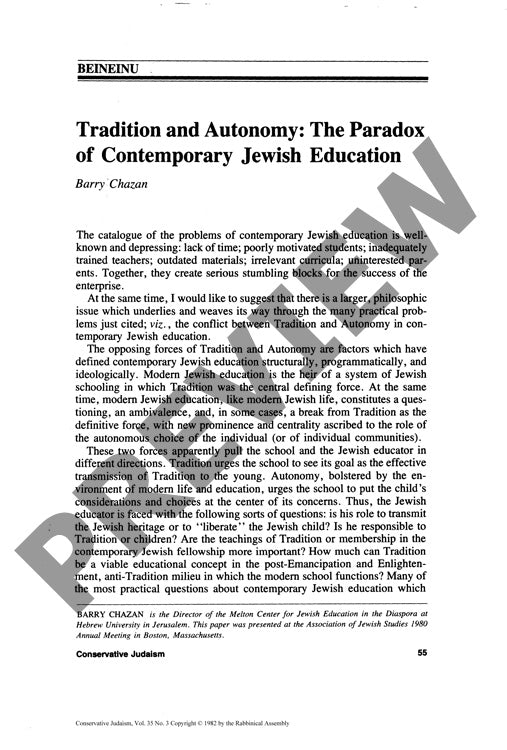Tradition and Autonomy the Paradox of Co
Couldn't load pickup availability
The apparent conflict between religious tradition and individual autonomy has long challenged Jewish education, manifesting in classroom tensions between preserving heritage and fostering independent thought. A deep analysis of classical Jewish sources, educational theory, and contemporary scholarship reveals that these forces are not inherently opposed, but rather exist in symbiotic relationship. Through comparative analysis of educational philosophies from Rotenstreich, Durkheim, Peters, and others, alongside examination of historical Jewish educational practices, two competing paradigms emerge: tradition-centered approaches emphasizing heritage transmission versus autonomy-centered models prioritizing individual choice. Contemporary discourse often mischaracterizes these concepts, conflating tradition with rigid indoctrination and autonomy with unrestricted license rather than reasoned choice. Two viable educational models emerge from this analysis: one that views tradition as divinely binding while respecting student autonomy, and another that treats tradition as valuable cultural heritage requiring autonomous acceptance. Effective Jewish education must therefore ground itself in substantive engagement with Jewish textual tradition while simultaneously developing students' capacity for reflective, autonomous decision-making, moving beyond both mechanistic transmission and superficial associationalism.

More Information
-
Physical Description
-
Publication Information
Published 1982
ISBN
-
Publication Credits
Barry Chazan

